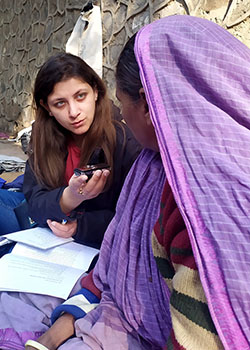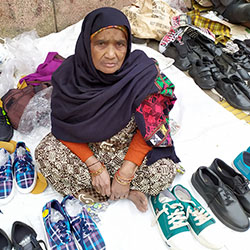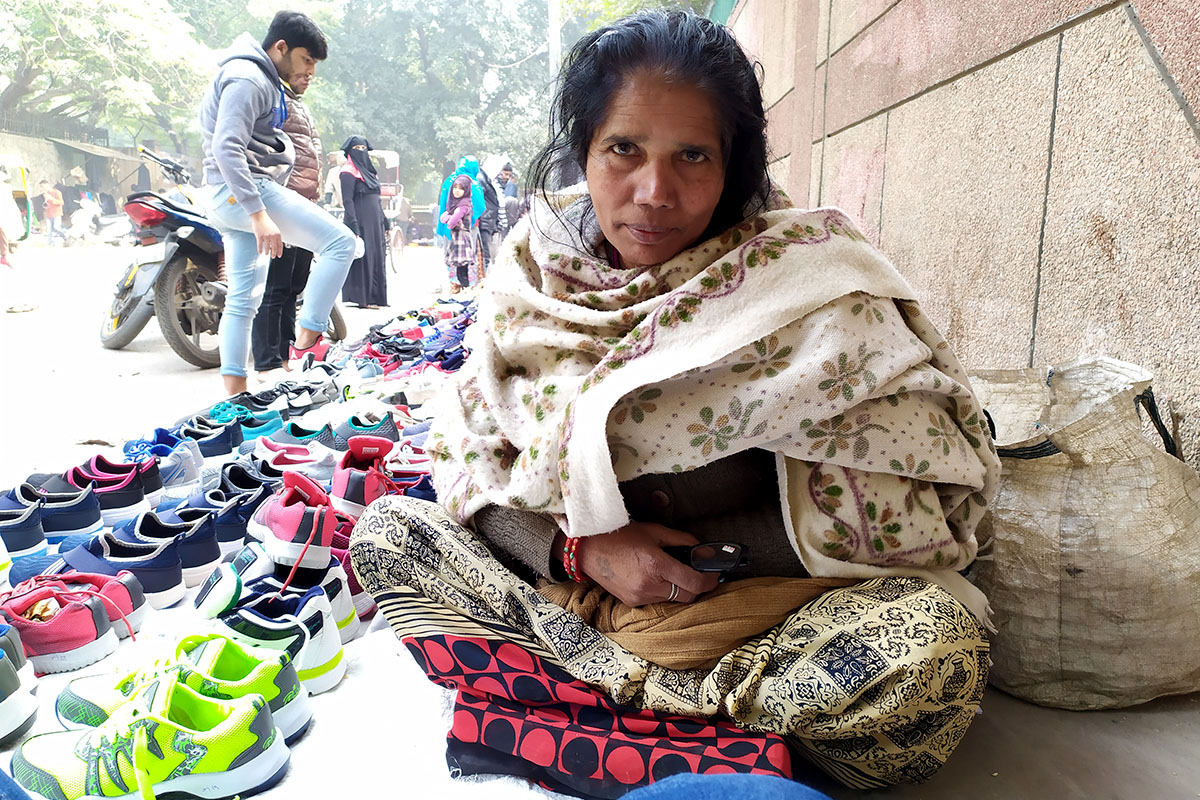
Women selling wares in the mahila bazaar say they must fend off drunken men, sexual harassment, thieves and other hazards, but having a market of their own is better than trying to sell in markets dominated by men, where they are also hassled by police and municipal authorities.
Photo by Swati Rastogi
NEW DELHI — This market street, like many others in the city, bustles with activity on a cold December morning as men and women set up shops on the sidewalks for the rest of the day. But something sets this market apart from the rest.
This Sunday market is a mahila bazaar, a retail zone set aside for women vendors only. It's a one-of-a-kind experiment in the city, set up by a nongovernmental organization nearly 15 years ago. The initiative was meant to provide women vendors safety from the harassment and abuse they faced in other markets from male vendors, police and public officials. But I see male vendors here. I set out to find the reason behind it.
As I walk closer to the market, I can hear the vendors chatting with their neighbors in their native tongue, Gujarati. They display their goods on a wall behind them and spread out piles of colorful clothes and footwear on the sidewalk in anticipation of potential customers who will come, look, bargain and perhaps purchase the goods. If not for these vendors and their merchandise, this street would be lifeless and devoid of colors.
I decide to engage with one of the vendors, an older woman wearing a blue shawl draped over her head. I ask her if I can talk to her for a few minutes about the market. I explain to her the purpose of my study. I tell her that I am trying to assess if this market is truly a success. But she is hesitant at first, and then refuses to talk. Like many others, she fears the consequences of speaking up about the market. She and the other vendors do not want to upset the organization that gave them this space to earn their livelihood.
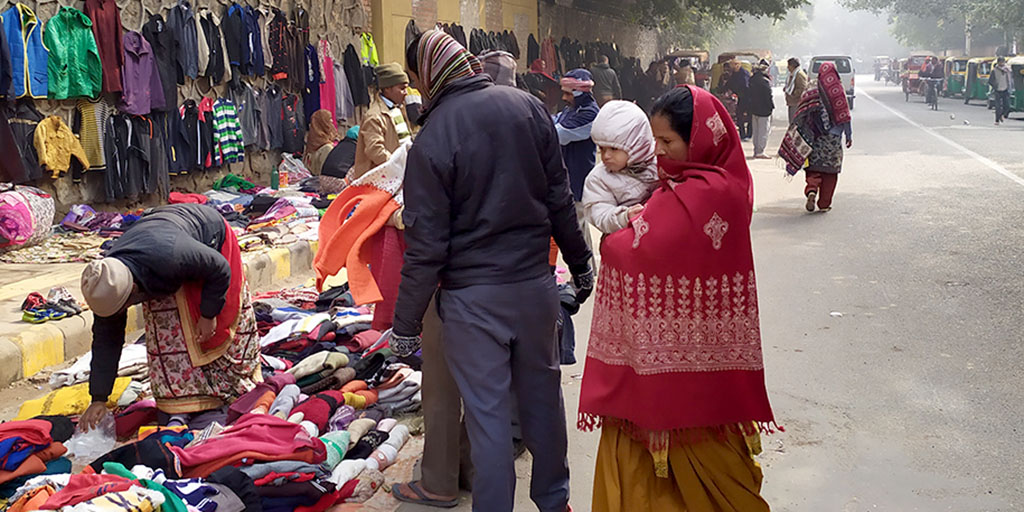
The vendors lack storage facilities in the vicinity of the market, which means they must cart their goods in and out each Sunday.
Photo by Swati Rastogi
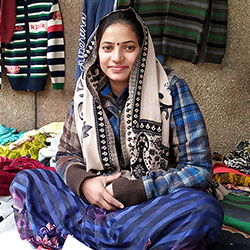
Women sell goods at the mahila bazaar to support their families, pay off medical bills or pay for their children's education.
Photo by Swati Rastogi
I come back a few more times before the women finally start to open up. They begin by talking about their hometowns. Most of them are immigrants from other states in India who moved to Delhi in search of work. Some are the sole earners in their households. Others work here for additional income to feed a large family. Some vendors tell me they work to pay for their children's education, while others have substantial medical bills to settle. The realities of their lives make the discomforts of vending at this market insignificant. They have only one concern at the moment: Will they earn enough by the end of the day?
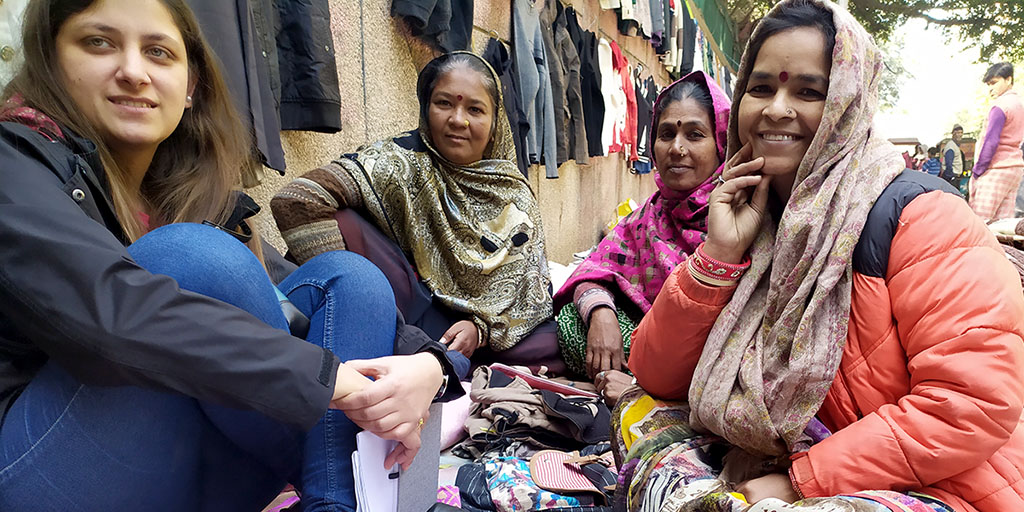
Rastogi had to earn the trust of the mahila bazaar vendors before they would talk to her about their lives and struggles.
Photo by Swati Rastogi
The women tell me that inebriated men often visit the mahila bazaar to harass them. One of the vendors describes an incident a few years prior, when some men tried to abduct a young girl from the market. The lack of safety here necessitates the presence of the women's male family members. That explains the company of male vendors in this market.
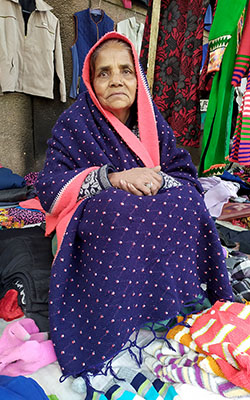
Most of the vendors are immigrants from other parts of India who came to Delhi for the economic opportunities here.
Photo by Swati Rastogi
These women have other problems. There are no storage facilities for their goods. There is no place to sit in the shade in summer or to avoid the rains. They have a hard time finding decent hygienic food to eat around the market area. Thieves plague them, and the location draws few customers.
But a marketplace legally reserved for women vendors has eliminated other problems. Municipal officials and police no longer try to evict the women from the market. The women do not have to compete with each other for space every Sunday. The market also looks cleaner than the mixed-gender markets I've visited.
The more research I do, the more questions arise for me. In a society so segregated by gender, are gender-specific markets the only way to address harassment and abuse? Or will they only widen the gap between men and women? What would be an ideal model of informal markets for street vendors in this city?
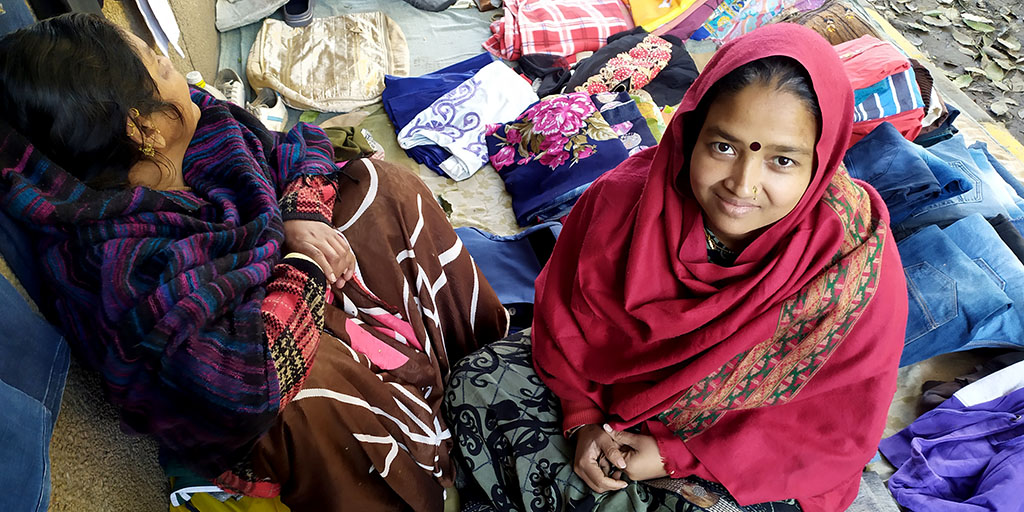
The women are permitted to sell their goods on a sidewalk in Delhi that is clean but draws only a few customers.
Photo by Swati Rastogi
I don't yet know the answers to these questions. But I hope that the information I'm gathering will help me – or others – design better and safer markets for the women street vendors of Delhi.

